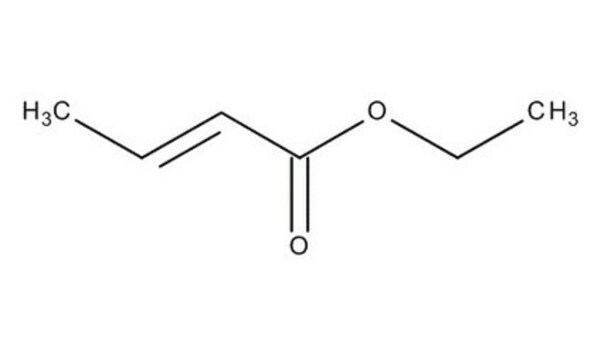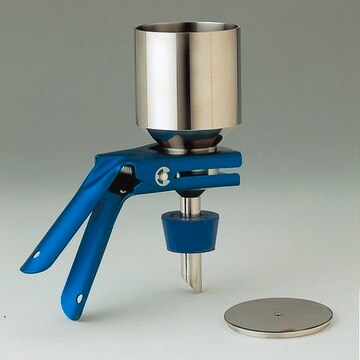W348600
Ethyl trans-2-butenoate
≥96%, FG
Synonym(s):
Ethyl (E)-2-crotonate, Ethyl crotonate
About This Item
Halal
Kosher
Recommended Products
biological source
synthetic
Quality Level
grade
FG
Halal
Kosher
reg. compliance
EU Regulation 1334/2008 & 178/2002
FDA 21 CFR 172.515
Assay
≥96%
application(s)
flavors and fragrances
Documentation
see Safety & Documentation for available documents
food allergen
no known allergens
Organoleptic
caramel; pungent; rum; sweet
InChI
1S/C6H10O2/c1-3-5-6(7)8-4-2/h3,5H,4H2,1-2H3/b5-3+
InChI key
ZFDIRQKJPRINOQ-HWKANZROSA-N
Looking for similar products? Visit Product Comparison Guide
General description
Application
- Comparison of the Fruit Volatile Profiles of Five Muscadine Grape Cultivars (Vitis rotundifolia Michx.) Using HS-SPME-GC/MS Combined With Multivariate Statistical Analysis.: This study details the analysis of volatile profiles in different Muscadine grape cultivars, providing insight into their chemical compositions during various stages of fruit development, which could be crucial for enhancing flavor and aroma in food products (Deng et al., 2021).
- Effects of methanogenic inhibitors on methane production and abundances of methanogens and cellulolytic bacteria in in vitro ruminal cultures.: This study explores the reduction of methane emissions through the use of inhibitors, contributing to more sustainable agricultural practices and environmental conservation (Zhou et al., 2011).
Signal Word
Danger
Hazard Statements
Precautionary Statements
Hazard Classifications
Eye Irrit. 2 - Flam. Liq. 2
Storage Class Code
3 - Flammable liquids
WGK
WGK 2
Flash Point(F)
35.6 °F - closed cup
Flash Point(C)
2 °C - closed cup
Personal Protective Equipment
Regulatory Listings
Regulatory Listings are mainly provided for chemical products. Only limited information can be provided here for non-chemical products. No entry means none of the components are listed. It is the user’s obligation to ensure the safe and legal use of the product.
FSL
Group 4: Flammable liquids
Type 1 petroleums
Hazardous rank II
Water insoluble liquid
JAN Code
W348600-SAMPLE-K:
W348600-SAMPLE:
W348600-10KG-K:4548173978253
W348600-BULK-K:
W348600-10KG:
W348600-VAR-K:
W348600-BULK:
W348600-1KG-K:4548173978260
W348600-20KG:
W348600-1KG:
W348600-4KG-K:
W348600-900G:
W348600-20KG-K:4548173978277
Choose from one of the most recent versions:
Already Own This Product?
Find documentation for the products that you have recently purchased in the Document Library.
Our team of scientists has experience in all areas of research including Life Science, Material Science, Chemical Synthesis, Chromatography, Analytical and many others.
Contact Technical Service










